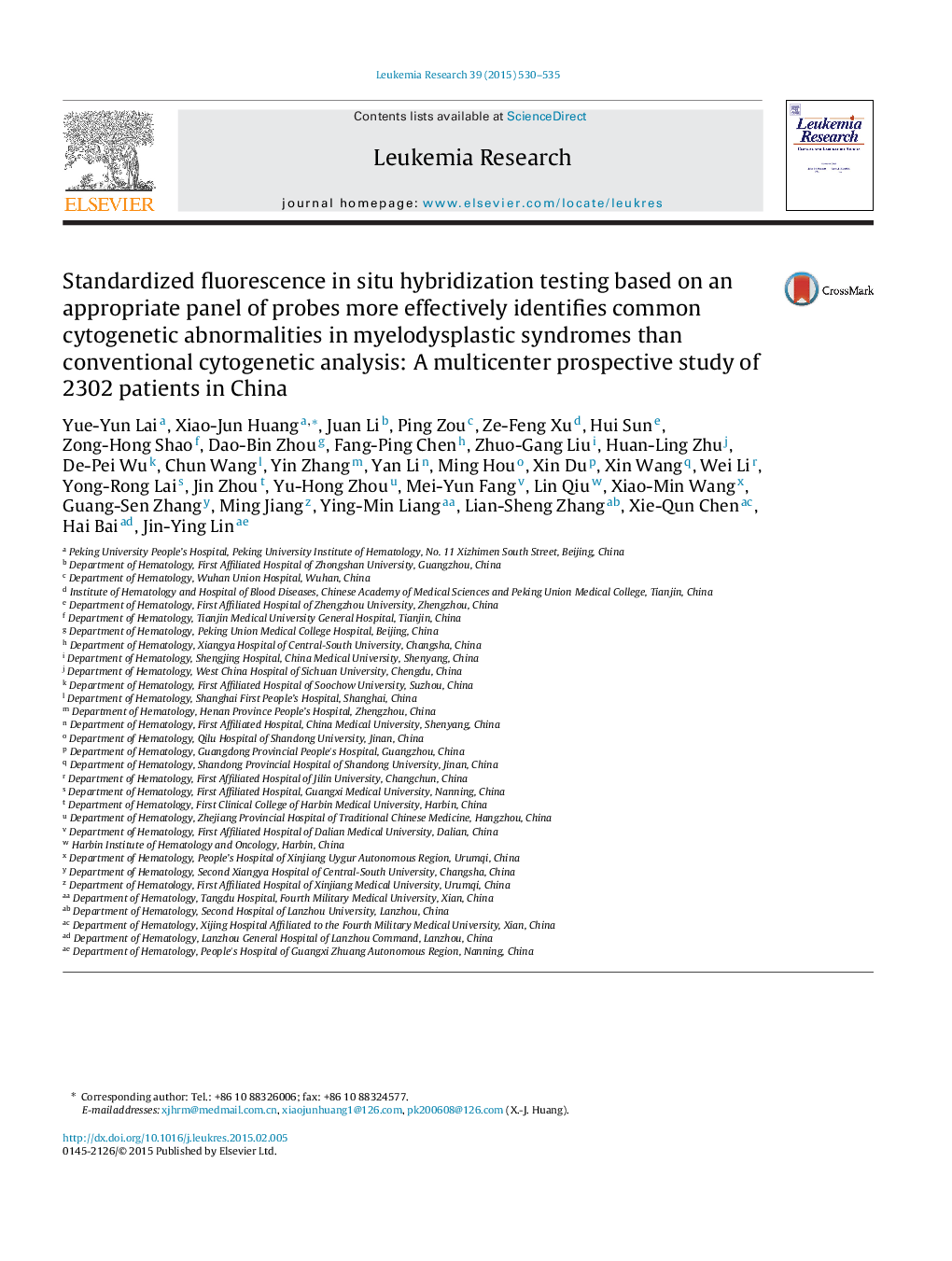| Article ID | Journal | Published Year | Pages | File Type |
|---|---|---|---|---|
| 2136552 | Leukemia Research | 2015 | 6 Pages |
•FISH is more effective in identifying the common cytogenetic anomalies than banding analysis.•Additional FISH analyses are needed in patients with normal karyotype by banding or with banding failure.
In an attempt to establish the advantages of fluorescence in situ hybridization (FISH) studies over conventional cytogenetic (CC) analysis, a total of 2302 de novo MDS patients from 31 Chinese institutions were prospectively selected in the present study for both CC and standardized FISH analysis for +8, -7/7q-, -5/5q-, 20q- and–Y chromosomal abnormalities. CC analysis was successful in 94.0% of the patients; of these patients, 35.9% of the cases were abnormal. FISH analysis was successful in all 2302 patients and detected at least one type of common cytogenetic abnormality in 42.7% of the cases. The incidences of +8, -7/7q-, -5/5q-, 20q- and–Y chromosomal abnormalities by FISH were 4.1% to 8.7% higher than those by CC. FISH identified abnormalities in 23.6% of the patients exhibiting normal CC results and revealed that 20.7% of the patients with adequate normal metaphases (≥20) had abnormal clones. FISH identified cytogenetic abnormalities in 50.4% of the patients with failed CC analysis. In summary, our multicenter studies emphasised and confirmed the importance of applying standardized FISH testing based on an appropriate panel of probes to detect common cytogenetic abnormalities in Chinese de novo MDS patients, particularly those with normal or failed CC results.
